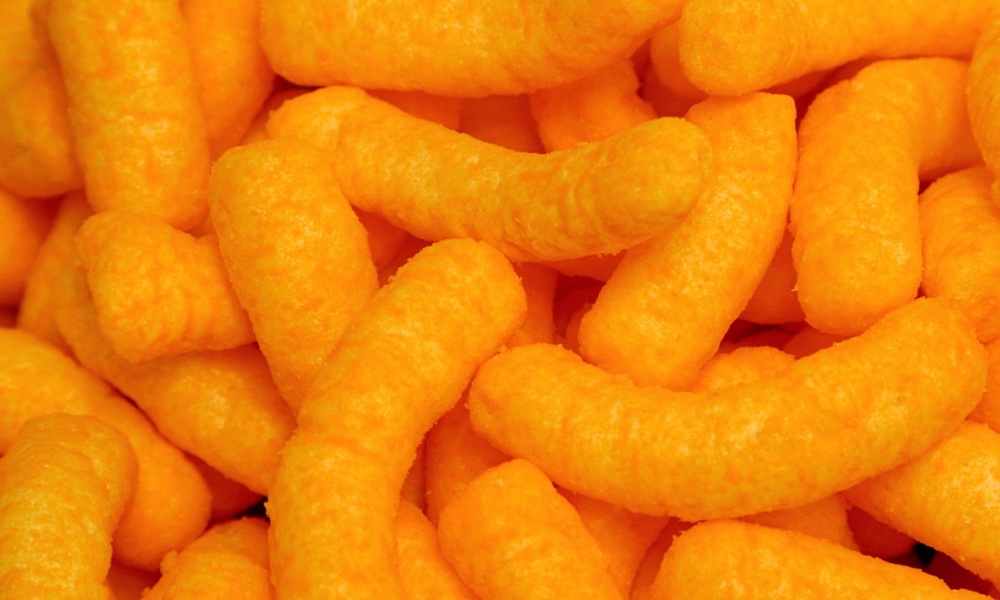Convenience is everything when you live life in the fast lane, but relying on ultra-processed foods may not be the best way to save time. A new study suggests that eating such foods may be causing you to eat more and gain weight.
Ultra-processed foods go down easy. You probably pick some of them up when you stop by your local convenience store or fast food outlet.
These are the man-made — as opposed to nature-made — foods that fit so well with our 24/7 lives. Think pizza and snack foods, foods with sugar, salt, fats and oils, plus a lot of other ingredients you wouldn’t even have in your kitchen like emulsifiers, flavorings and additives that imitate the taste, texture and quality of “real” food. They cook up fast and we tend to eat them just as quickly.People eating ultra-processed food for two weeks consumed over 500 more calories per day on average, compared to the two weeks they ate unprocessed food.
So, researchers at the National Institute of Health's National Institute of Diabetes and Digestive and Kidney Diseases designed a controlled experiment to compare differences in calories consumed and weight gained between people eating a diet of ultra-processed foods and people eating a diet of unprocessed foods.
Twenty healthy people were admitted to the National Institute of Health’s Metabolic Clinical Research Unit for one month. Each person was assigned to eat either an ultra-processed diet or an unprocessed diet for two weeks, and then they switched. They had three meals a day with access to bottled water and snacks that corresponded to the diet they were following. The two diets had the same amount of carbs, fat, sugar, salt and calories.
People eating ultra-processed food for two weeks consumed over 500 more calories per day on average, compared to the two weeks they ate unprocessed food. They also had an average weight gain of two pounds, and increased body fat. While eating the unprocessed diet, the participants lost an average of two pounds and lost body fat.
Metabolic testing showed that individuals eating the ultra-processed diet burned more calories than when they were on the unprocessed diet, but not enough to make up for the larger number of calories they ate. Because the study’s volunteers were healthy and because of the short duration of the study, no other significant differences in other health parameters were seen.
Why did people on the ultra-processed diet eat more? The researchers have some theories. First, the people eating ultra-processed food ate fast. Perhaps it was the textural or sensory properties of the food that caused people to eat faster, but eating too fast doesn’t allow enough time for the stomach to tell the brain that it’s full, so overeating is more likely.
Second, in order to balance the dietary fiber and match the calories in the two diets, fiber was added to the beverages in the ultra-processed diet. But beverages may not contribute to satiety — the feeling of having hunger satisfied — like solid foods do, so this may have led people to eat more.While eating the unprocessed diet, the participants lost an average of two pounds and lost body fat.
Third, though the diets were as identical as possible, the unprocessed diet contained slightly more protein than the ultra-processed diet. People on the ultra-processed diet may have eaten more in an effort to reach certain protein targets.
The decision to choose an ultra-processed meal over an unprocessed one is affected by a number of factors — things like cooking skills, having the time and equipment needed for cooking, knowledge about cooking and nutrition and cost, said Kevin Hall, an NIDDK senior investigator and the study’s lead author, but the study's results are clear. Said Hall, “This is the first study to demonstrate causality — that ultra-processed foods cause people to eat too many calories and gain weight.”
Ultra-processed food really isn’t food at all. Your money is better spent on unprocessed foods — fresh fruits and vegetables, fresh meats, whole grains, nuts and seeds, beans and peas, and lowfat dairy foods that you can turn into healthy, satisfying meals. It may take a little while to get used to cooking this way, but over time it will become automatic.
The study was published in Cell Metabolism.





